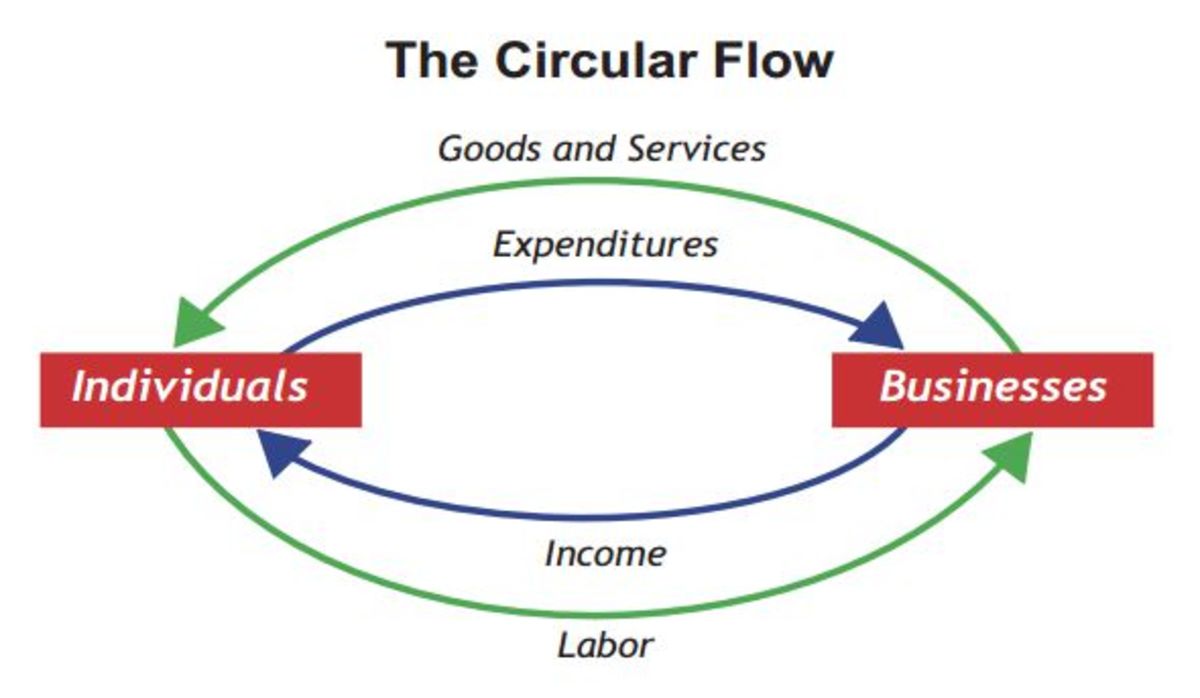Outsourcing Jobs and The American Dream

Outsourcing offshore and unemployment go hand in hand, and together, they are bringing the US economy to its knees. The issue of how outsourcing affects the economy has been a matter of monumental debate for the last decade with growing importance as American jobs continue to disappear. Those populating the political right (aka as millionaires, billionaires, CEO's, COO's, Board of Directors, and big business) claim the practice will have a positive effect on the US economy. Why? Because it saves money for companies and avails Americans, with an eye toward entrepreneurial activities, more opportunities. The most notable reason given for outsourcing is that it leads to more Americans holding higher level positions.
The opposition, those who want the US to retain its jobs, say hiring foreign workers strikes a blow against the US economy for every instance. Outsourcing strips Americans of the jobs they would have performed, especially those requiring skilled and semi-skilled workers. They also maintain that taxation methods based on outsourcing only serves to decrease a corporation's tax liability, and thus, decreases federal spending.
Back in 2004, the Bush Administration, despite evidence that demonstrated otherwise, insisted that the movement of American factory jobs and white-collar work to other countries was a positive program. They had also claimed that 1.7 million jobs would be created in 2003. Instead, our country lost 53,000. In fact, 2.2 million jobs were lost during Bush's first three years in office.
By 2006, the Bush Administration was having a difficult time of keeping Americans convinced that outsourcing was beneficial to the US economy. Recognizing that Americans were becoming increasingly doubtful and doubly resentful, a new approach was taken. Acknowledging the loss of a job as being painful to those who suffer the loss, he advocated making sure people are educated in order to “fill the jobs of the 21st century.”
And to just what jobs might he have been referring? In 2007, Goldman Sachs estimated a whopping 400,000 to 600,000 professional services jobs as being moved overseas in the previous few years. 104,000 IT jobs were outsourced between 2000 and 2003. From 2000 to 2004, another 128,000 jobs were slashed from software-producing industries. During this same time frame, 100,000 new jobs for producing software for export to the US, were created in India.
An estimated 75% of all major financial institutions are sending work offshore. One research company found the world's 100 largest financial services firms expect to have shifted $356 billion worth of operations and about 2 million jobs to low-wage countries by 2012. To date, there are at least 40 states contracting out public sector work to off shore locations. The outsourcing of state and local government technology contracts is in excess of $20 billion. The state of Washington discovered that 36 out of 41 governmental agencies were contracting work overseas. Not so surprisingly, most states don't even know how many of their agencies are also outsourcing to foreign markets.
With the level of off shore outsourcing taking place in sectors besides manufacturing, it's hard to understand just what jobs of the 21st century Bush was talking about. He also said we should be making sure to align education with these illusive jobs. How do we educate ourselves to work such jobs when we don't know what they may be?
The Bureau of Labor Statistics shows an alarming picture of the ordeal college graduates are facing in today's job market. Just ten years ago, a little over 81% of college graduates under the age of 25 were working. 59.7% of them were working in positions requiring a college degree. Those students who went on to Masters programs or other forms of continuing education are lumped into the 19% not employed. Ten years later, Oct. 2010 to Mar. 2011, there are less than 75% of college graduates working any job at all. Of those who are working, only 45% are working in jobs requiring a college degree. To make matters worse, the cost of an education at a four year college has risen an average of 30% since 2000, but there are currently 15% less graduates able to find employment for degree required positions. And the stated 15% doesn't include those who are unable to find any job at all. Where are all those 21st century jobs needing educated employees?
In April, the Wall Street Journal reported that some of the country's largest corporations (Wal-Mart, Microsoft, Caterpillar, General Electric, United Technologies, Oracle, Cisco, Intel, Chevron, Merck, and Stanley Works) have cut their workforces by 2.9 million people over the last decade, while hiring 2.4 million people overseas. Since 2001, these corporations have been adding more foreign jobs overseas than jobs created in the US. In the last year alone, they have increased the use of outsourcing by 57%.
Want another slap in the face? Some of these same companies, Cisco Systems for one, want to bring the profits made through outsourcing, back into the US with as little tax liability as possible. Cisco Systems is currently involved with a lobbying campaign called “Win America.” It calls for a tax repatriation holiday that would let big corporations off the corporate tax hook, by allowing them to bring in money they've hoarded overseas at a drastically lower tax rate.

Itching for yet another love tap? Cisco Systems had 26% of its workforce ensconced overseas at the beginning of the decade. They now have 46% of the workforce abroad. It's increasingly clear that the people who run such corporations, have no loyalty, no sense of patriotism. While it's perfectly understandable that a corporation's function is to make money, there is still a responsibility toward those who have made them great. And when actions taken, serve to bring great harm to an entire populace, a line must be drawn.
While those for and against the practice of outsourcing are battling it out, the facts remain. Income inequality is increasing. The relatively recent 20% increase in the gap has been blamed on increased trade by economists left to theorize that it translates into a decrease in real wages for the majority of American workers. Recent wage trends seem to confirm the theories.
The Economic Policy Institute reported that wages in the industries still creating jobs, are 21% lower than the wages paid in those industries losing jobs. Besides the lower wages, jobs being created do not carry the benefit packages of those outsourced jobs. A dangerous effect of the mobility of employers is that they have taken to using threats of moving overseas in order to effectively hogtie would be bargainers coming to the table to discuss working conditions. Full time positions being cut to part-time hours and reductions in pay rates have become the norm in an environment designed to squeeze the American worker into more narrow confines.
Losing trade related jobs doesn't just hurt those who are now unemployed. Entire communities are affected by the falling tax revenues normally gained through earned income tax. The continued off shoring is rapidly spreading to other sectors, especially those with higher technology and skills. The practices are putting the long-term competitiveness of the American economy at risk.
So how do we make our voices heard? The first logical thing to do is to find out where your politicians stand on the subject. Apply pressure through telephone calls and letter writing campaigns. I learned years ago, during a stint as a lobbyist, just how effective letter campaigns can be. In addition, it doesn't hurt to organize a rally outside your governor's doorstep to protest the continued allowance of American jobs being outsourced while American corporations doing so reap the benefits of keeping income earned abroad free from American taxation.
If this information is upsetting and worrisome to you, please pass it on by clicking on the Tweet, Like, or +1 button provided at the top of the page. Then contact your government officials and let them know how you feel!
- American Corporations: The New Slave Masters
Corporations crying over the high tax rates levied against them, have continued to move American jobs overseas. The question begs to be asked whether a 30% foreign tax rate truly makes the difference over the 35% American rate, or if the true lure is - The Dismantling of American Liberties - Act I
Part 1 of a three part series aimed at explaining how we arrived at our loss of liberties through deception, manipulation, and greed. The dismantling of our American liberties began in ernest with the inception of the CIA in 1947 and has continued on - Heated Hoax - How The Global Warming Issue Got Its Start
Who's responsible for generating the myth known as global warming? Margaret Thatcher and Crispin Tickell cooked up the scheme to create an issue by which the newly elected Thatcher could represent herself as an authority in 1979. Today, thousands of - The New World Order: Not Just Another Conspiracy Theory
The subject of a New World Order has been a recurring theme since the Senior President Bush took office. This article explores the background and foundations of the idea known as the New World Order.









